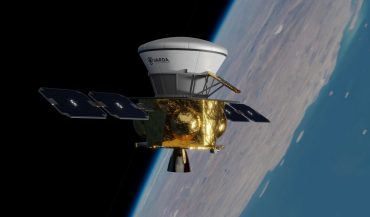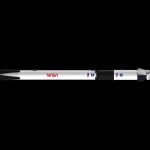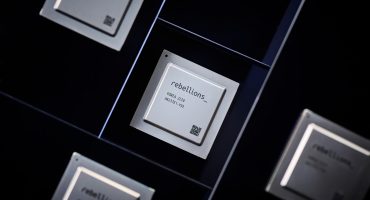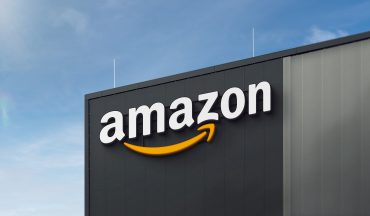
- Investing
Varda Raises $187 Million to Scale Orbital Drug Manufacturing
5 minute read

Space drug manufacturer Varda accelerates orbital production capabilities after demonstrating successful pharmaceutical tests in microgravity
Key Takeaways
- $187 million Series C funding raised by space startup Varda to advance drug manufacturing in orbit, bringing total capital raised to $329 million with backing from Natural Capital, Shrug Capital, and Peter Thiel
- Successful space drug production validated through three completed missions manufacturing HIV drug ritonavir in microgravity, with FAA approval secured for Earth return operations
- $9.41 billion market opportunity projected for space-based biopharmaceuticals by 2029, with Varda targeting high-value monoclonal antibodies segment worth $210.06 billion
Introduction
Space startup Varda has secured $187 million in Series C funding to commercialize drug manufacturing in orbit, marking a significant milestone in the convergence of space technology and pharmaceutical production. The funding round, led by Natural Capital and Shrug Capital with participation from Peter Thiel and other prominent investors, brings Varda’s total capital raised to $329 million.
The El Segundo-based company leverages microgravity conditions to produce pharmaceuticals with enhanced properties unattainable on Earth. This approach addresses critical manufacturing challenges in the pharmaceutical industry while establishing new commercial applications for space technology.
Key Developments
Varda has completed three space launches with a fourth currently in orbit, demonstrating repeatable orbital manufacturing capabilities. The company’s W-Series 1 capsule received FAA approval in 2024 for Earth return operations after successfully producing the HIV drug ritonavir during a 27-hour manufacturing experiment in space.
The startup plans to conduct a fifth launch by year’s end, utilizing Rocket Lab’s Photon spacecraft alongside its manufacturing module and heat-shield protected capsule. This rapid flight cadence represents a shift from small-scale International Space Station experiments to commercial-scale production.
Varda has expanded its operations with a 10,000-square-foot laboratory in El Segundo, California, and opened facilities in Huntsville, Alabama. The company has hired experienced structural biologists and crystallization experts from leading pharmaceutical companies to support its scientific operations.
Market Impact
The funding demonstrates strong investor confidence in space-based manufacturing, following Varda’s previous $90 million Series B round. The space-based biopharmaceuticals market projects growth at a 12.8% compound annual growth rate, reaching $9.41 billion by 2029.
Varda’s focus on monoclonal antibodies positions the company within a $210.06 billion market segment as of 2022. The company’s proven ability to manufacture and return drugs from space validates the commercial viability of orbital pharmaceutical production.
Industry observers view Varda’s progress as establishing space as a commercial frontier beyond exploration, potentially creating new economic foundations for orbital operations.
Strategic Insights
Varda’s approach exploits microgravity’s unique properties to improve protein crystallization and cell growth, potentially producing more effective drugs with fewer side effects. The company’s process involves launching spacecraft, manufacturing drugs in orbit, and returning finished products to Earth within approximately one month.
The startup’s expansion beyond pharmaceuticals into semiconductors and fiber optics signals ambitions to create an “industrial park in orbit” for high-value manufacturing. This diversification strategy addresses multiple industries requiring precision manufacturing conditions.
Varda’s reentry capsules reach Mach 25 speeds, providing valuable testing environments for government agencies including the Department of Defense. This dual-use capability enhances revenue potential while supporting national security applications.
Expert Opinions and Data
“By expanding, we can support work on more complex molecules and ultimately increase cadence to achieve the turnaround times the pharmaceutical industry expects,” stated Chief Science Officer Adrian Radocea. The company’s focus on complex drug formulations addresses industry demands for faster development cycles.
CEO Will Bruey emphasized the funding’s strategic importance: “With this capital, Varda will continue to increase our flight cadence and build out the pharmaceutical lab that will deliver the world’s first microgravity-enabled drug formulation.”
Radocea highlighted the significance of expanded facilities, stating, “Our new lab space is an investment in our belief that in-space pharmaceutical manufacturing will drive the foundation of the orbital economy.” According to CNBC, this positions Varda as the first company to process materials outside the International Space Station.
Conclusion
Varda’s successful funding round and operational achievements establish the company as a leader in commercial space manufacturing. The startup’s proven ability to manufacture, test, and return pharmaceutical products from orbit demonstrates the technical feasibility of space-based production at commercial scale.
The convergence of space technology and biotechnology represents a fundamental shift in how high-value products can be manufactured. Varda’s rapid expansion and strategic partnerships position the company to capitalize on growing demand for precision manufacturing solutions while establishing the infrastructure for a sustainable orbital economy.







